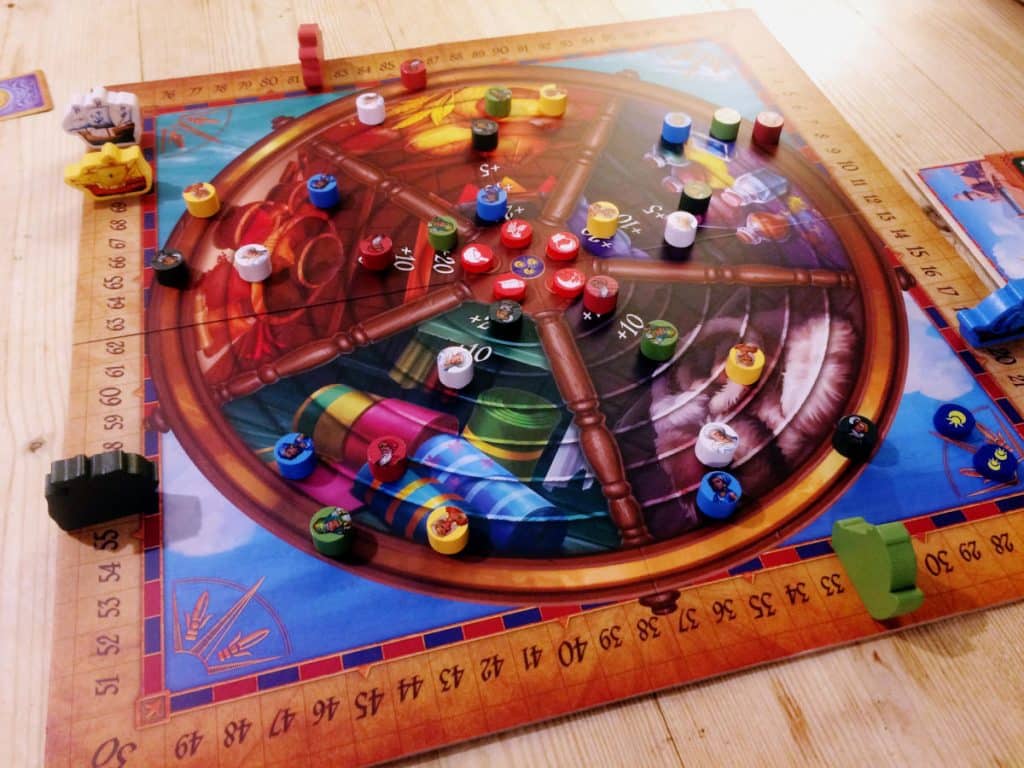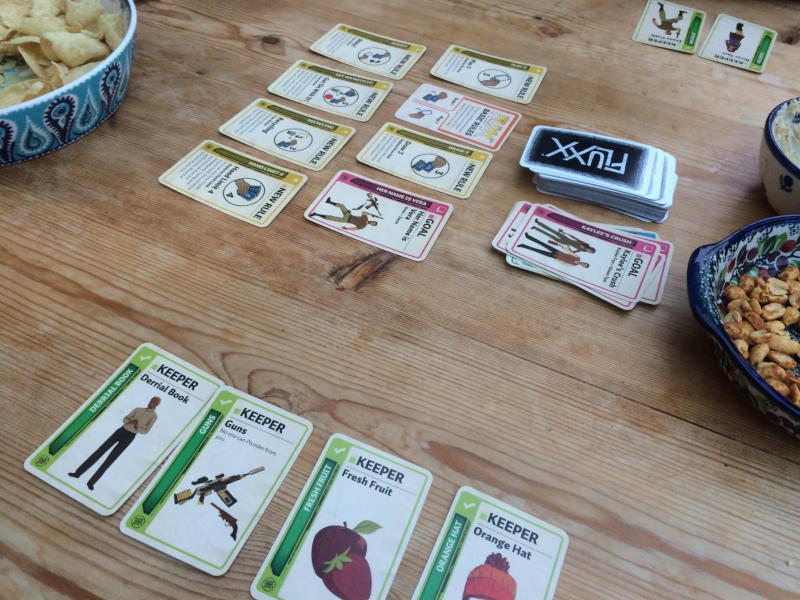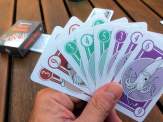I was pleased to see the re-released game Medici from 1995 become so popular in our household. It made me think why a game that’s now nearly 30 years old was not only picked up by another publisher, but still has a lot of appeal such a long time later. So in this article, I want to look at classic games and see which ones have stood the test of time.
Listen to the Audio Version
Intro Music: Bomber (Sting) by Riot (https://www.
Fragments by AERØHEAD | https://soundcloud.
Music promoted by https://www.
Creative Commons / Attribution-ShareAlike 3.0 Unported (CC BY-SA 3.0)
https://creativecommons.
Now, I don’t know how much the publisher Steamforged Games has changed Medici in its latest release, other than maybe updating some of the illustrations and components. I never played the game until now, so I don’t know any of the earlier versions. However, it feels like it’s pretty much the same game as it was when it originally came out nearly 30 years ago.
A designer such as Reiner Knizia is a good indicator that a game is solidly designed. So it’s likely that the same game will be appealing over a long period of time. I think Knizia is very good at distilling a set of mechanisms into a game that’s simple and clear. It means there are very few rules and only one or two things you need to concentrate on. His games usually appeal to a wide range of ages and experiences of the modern board game hobby.
Medici is a good example. I have yet to review the game, but it’s certainly very quick to teach, plays in under an hour and is basically about one thing: bidding. From that simple starting point, a game develops that is full of bluffing, counting, excitement and general table talk that the whole family can enjoy together. Medici is a clear evergreen title, in my view, and Steamforged Games seems to agree.
Not All Classic Games Are Evergreens
Of course, a good designer behind a game doesn’t make for an evergreen. Some games are of a certain era. These classic games are set against a historical backdrop in a way that wasn’t appropriate back then, even though it was usually accepted as harmless or at least tolerated, but that’s certainly not appropriate now. These games rightly deserve to be spurned. I mean, glossing over the slave trade to create a fun family game is just awful.
Having stated the obvious, we are left with other games that were considered solid, exciting and appealing when they first came out, but have not stood the test of time for other reasons. Taste certainly has something to do with it, of course. For example, while Conan had a certain appeal at the time, Dune seems to be the new hit. There are other genres and settings that just don’t hit the mark any longer, even though they were hugely popular in their time.
Game design has also changed. While 10 to 20 years ago we happily dealt with the oodles of end-of-round housekeeping and clunky mechanisms that just weren’t quite refined or accepted a lot of downtime between turns, now this is no longer the case. Modern hobby games have gotten better on a mechanical and procedural level. They work more smoothly and efficiently than their classic game counterparts.
Similarly, games are often much shorter nowadays. It is possible to squeeze the same amount of excitement into a game that lasts less than 60 minutes as a classic game that would have taken two to three hours. Partly, that’s because the flow of games is now more efficient, but also because mechanisms are stripped back and have become more refined.

Purity in Evergreens
For a game to have a good chance of becoming an evergreen, it needs to be timeless. That is obvious, of course, but it also outlines some characteristics these types of games share:
- their setting is not based on a fashion that will fade over time,
- they have simple rules and only a few mechanisms, all of which have a reason to be there,
- they don’t outstay their welcome,
- they keep everyone invested, even between turns and
- they have a wide appeal covering a wide range of player ages, experiences and interests.
As I said, I think Medici ticks all the boxes. The Medici family isn’t some sort of fad. They are historic characters, even if the game itself is obviously not simulating history. The rules are really simple and taught in minutes. In fact, you can teach the game as you play. Every rule and mechanism has a reason to be there. There aren’t edge cases or exceptions. Even ties are always resolved in the same way. Medici plays in under an hour, whatever the player count and stays interesting and exciting right until the end. The bidding and bluffing and general table talk appeal to a wide range of players and for some it’s the set collection element that they enjoy. It just works.
In the same way, Carcassonne is an evergreen game in my view. Even without its many versions and expansions, this classic game ticks all the boxes. Being set in a real-world location makes it timeless. There are very few and very simple rules. Even though a game of Carcassonne can take a while, people usually don’t lose interest. Even between turns, you want to see what other players are doing. Map-building and tile-laying are activities that players of a wide range of ages enjoy.
Other Evergreen Classic Games
Other classic games that are evergreen include Fluxx. It’s no surprise it’s seen so many versions being released. The game keeps reinventing itself, but even if there had been no version since the original game, it would still be amazingly popular. I guess it sort of breaks the rules of having simple rules, because the game is about constantly changing existing or introducing new ones. However, every rule is there for a reason and at the beginning of the game, the rules couldn’t be simpler: draw a card, play a card.
Catan, or The Settlers of Catan as I still know it, is another classic game that still sells amazingly well and continues to have a huge following, including tournaments and new releases. It also ticks all the boxes, except maybe game length. I do find it slightly outstays its welcome. If you could cut half an hour off the playtime, it would be a lot more appealing.
Citadels is another game that ticks all the boxes, except game length. If played well, you can drag it out quite a bit, while the excitement level drops to near zero. At some point, it will be clear who the winner is going to be and artificially extending the game is just painful.
Of course, a lot of abstract games are evergreens for the same reasons. I love the Q series of games, such as Quoridor or Qawale, from Gigamic. They have no setting and very simple rules. Yet, they’re exciting and keep everyone’s interest from the start right through to the end. If anything, these games become more exciting the longer they last.

What About You?
I’m sure there are many more evergreen titles. Are there any you could name? What makes classic games evergreen titles for you? Do you have a game that was recently re-released but originally came out 20 or more years ago? As always, please share your thoughts and experiences in the comments below. I’d love to hear from you.
Keeping the blog running takes time and resources. So if you can chip in, that would be amazing.
Useful Links
- Medici: https://steamforged.
com/ en-gb/ collections/ medici-board-game - Steamforged Games: https://steamforged.
com/ en-gb
2 Comments
What are you thoughts?
Add your thoughts on the topic to the form below and join the conversation.
Audio Version
Intro Music: Bomber (Sting) by Riot (https://www.
Fragments by AERØHEAD | https://soundcloud.
Music promoted by https://www.
Creative Commons / Attribution-ShareAlike 3.0 Unported (CC BY-SA 3.0)
https://creativecommons.
Playlist
These are the songs I listened to while I was writing this topic discussion article:







Will have to try MEDICI which I’ve yet to play, but agree that CARCASSONNE is definitely a classic evergreen. Got a copy for the (then-future) in-laws at Gen Con 2007 and they’ve worn two full sets of tiles out since then.
While the games are not as popular as some, my family & I view ARKADIA and THEBES as evergreen games and drag them from the depths of game storage to play at least once a year or so.
Steven
Thank you for your comments, Steven. I’ve not played Arkadia or Thebes yet, but it sounds like I should.